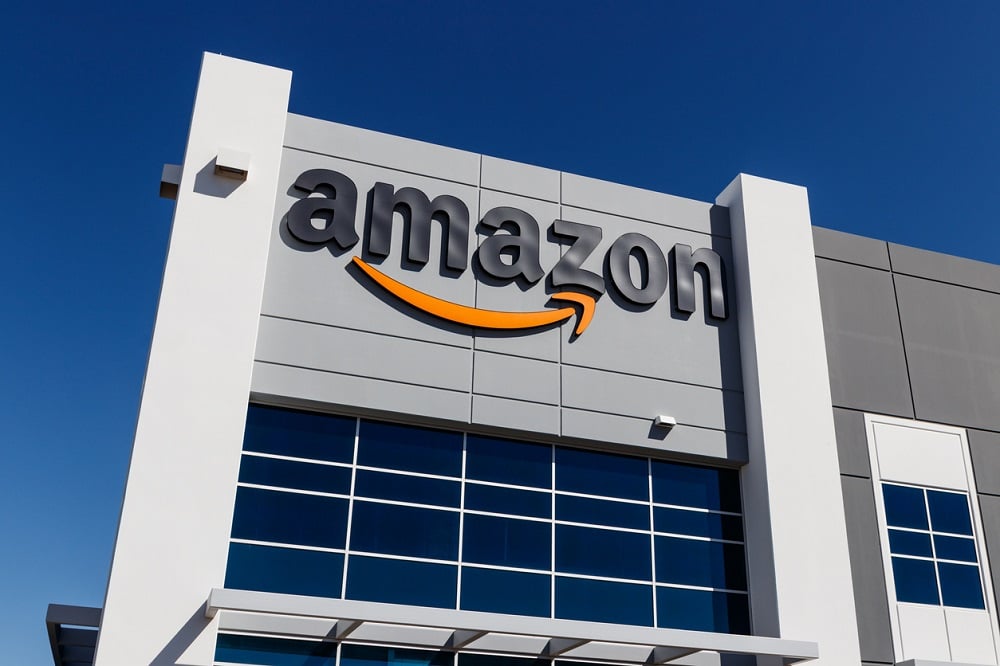The firm’s SVP or HR says industry professionals must push themselves and be ready to turn any challenge into an opportunity.

With over 16 million clients and 80,000 employees worldwide, the Royal Bank of Canada is an established giant in the financial world and has a history dating back more than 150 years – but it’s also got its eye on the future.
The firm has been recognized multiple times for its sustainable approach to business and its focus on young people - in fact, it picked up the 2016 Canadian HR Award for Next Generation Employment Initiative thanks to its industry-leading technology and operations student program as well as its broader student strategy.
Jenny Poulos, SVP of HR and global recruitment, is among the key drivers pushing for constant improvement at RBC – here, she reveals what’s in store for the award-winning HR department and predicts what will happen to the industry over the next five years.
If you could give your younger self, or someone entering HR for the first time, one piece of advice – what would it be?
Is there anything exciting in the pipeline for your HR department?
Three are also three major trends shaping the work in HR:
What’s the biggest professional obstacle you – or your team – have faced and how did you overcome it?
The decision to recommend that a major project be altered significantly when it had significant visibility. It felt like a failure at first, but it was one of the best learning experiences that I’ve had.
What’s your biggest industry worry or concern right now?
Challenges are always opportunities. Being ready for opportunities … and then striking when they come about is important. Many businesses are transforming the way they work in order to continue to compete and win in a changing business environment. I believe that HR has to be at the table with our business partners helping navigate that change, identify skill and talent needs that support the new world of work and be a trusted partner. And be willing to challenge the way we work.
If you could change anything about the HR industry, what would it be?
Increase the availability of more innovative tools and technology to enable HR and employees.
What is the proudest moment or achievement of your HR career so far?
I didn’t start my career in HR. I was a leader in the business for about 13 years before I joined HR as a Learning Advisor. Since then I’ve had various business and HR leadership roles. These experiences have provided me with exposure to our different businesses and geographies, which I may have not had, if I didn’t make that decision to move into HR several years ago.
What’s the most rewarding thing about being in HR?
Exposing employees to different parts of the business is extremely important at RBC. Many in HR have worked in banking or operations before moving to HR. Most discover it is where they can impact both company performance and employee success.
How do you predict the industry will change, if at all, over the next five years?
What would you like your HR legacy to be?
I want to be remembered for how I made people feel. I want to be remembered as a fair and trusted leader, someone who engineered great career opportunities for the people I worked with. Success for me would be that I’ve inspired people to strive for greatness and made us think differently as an organization and as individuals.
Nominations for the 2017 Canadian HR Awards are now open and HR professionals are being encouraged to nominate themselves, their team, or their entire organization for a coveted award.
Accolades up for grabs include the Award for Excellence in Diversity and Inclusion, the Award for Best Employer Branding and the Award for Lifetime Achievement in the HR industry.
More information about the upcoming awards – due to take place in September – can be found online.
The firm has been recognized multiple times for its sustainable approach to business and its focus on young people - in fact, it picked up the 2016 Canadian HR Award for Next Generation Employment Initiative thanks to its industry-leading technology and operations student program as well as its broader student strategy.
Jenny Poulos, SVP of HR and global recruitment, is among the key drivers pushing for constant improvement at RBC – here, she reveals what’s in store for the award-winning HR department and predicts what will happen to the industry over the next five years.
If you could give your younger self, or someone entering HR for the first time, one piece of advice – what would it be?
- Know yourself, and then be true to yourself. Understand your strengths and weaknesses. Know what you love doing and what motivates you. Use this to make career choices, target the right job opportunities and employers.
- Build your personal brand. What do you want people to say about you? You need to be ready to “tell your story”. But even more important is making sure your behaviours and actions consistently reflect your brand and who you say you are. Consistency is key in this regard.
- Push yourself outside your comfort zone. Believe in yourself and your capabilities. Try new roles, new projects, and travel, see the world. And yes, that comes with risk, but I have never regretted the risks I’ve taken at work and in life. That’s when I’ve learnt the most.
Is there anything exciting in the pipeline for your HR department?
- HR embedded in the business: Talent management is every leader’s job at RBC. HR plays a key role, sometimes leading, and other times enabling, but we are very much a part of our business. That’s the key to our success. Our HR Business Partners are embedded in the businesses – they sit at the senior management tables in those business groups and get to know the business and talent very well.
- New capabilities: We have built many new capabilities to reflect external forces including the changing needs of employees, including millennials- e.g. social recruiting (RBC’s LinkedIn Campus Recruitment group is #1 talent brand among Canadian banks with students and recent graduates.) data analytics and insights, design thinking, agile, change management, employee engagement management, and employee wellness to name a few.
- Diverse Teams: We’ve built up a team of professionals who come from many different disciplines and this in itself brings diversity of thought and experience. We have built an HR team not only with people who have grown their careers as HR professionals, but also from across the bank: retail banking, wealth management, finance, risk, communications, IT and law. We’ve hired HR professionals from many industries — retail, technology, pharmaceuticals, government. We have a saying, that simply having diversity is interesting; doing something with it is powerful.
Three are also three major trends shaping the work in HR:
- Demand for advanced analytics (e.g. HR proactively identifying areas of people risk, opportunities such as new talent pools for talent sourcing – insights from increased use of data and analytics to inform business actions.)
- Need to be more agile –acting more quickly and time boxing ourselves in delivering solutions. HR needs to move faster and to pivot when the context changes or something doesn’t work. We need to be bolder in our thinking and our actions, challenge the status quo. Bolder in how we work.
- Importance of enabling Employee engagement and development - At RBC we refer to them as the three Cs - Careers, Connections, and Community.
What’s the biggest professional obstacle you – or your team – have faced and how did you overcome it?
The decision to recommend that a major project be altered significantly when it had significant visibility. It felt like a failure at first, but it was one of the best learning experiences that I’ve had.
What’s your biggest industry worry or concern right now?
Challenges are always opportunities. Being ready for opportunities … and then striking when they come about is important. Many businesses are transforming the way they work in order to continue to compete and win in a changing business environment. I believe that HR has to be at the table with our business partners helping navigate that change, identify skill and talent needs that support the new world of work and be a trusted partner. And be willing to challenge the way we work.
If you could change anything about the HR industry, what would it be?
Increase the availability of more innovative tools and technology to enable HR and employees.
What is the proudest moment or achievement of your HR career so far?
I didn’t start my career in HR. I was a leader in the business for about 13 years before I joined HR as a Learning Advisor. Since then I’ve had various business and HR leadership roles. These experiences have provided me with exposure to our different businesses and geographies, which I may have not had, if I didn’t make that decision to move into HR several years ago.
What’s the most rewarding thing about being in HR?
Exposing employees to different parts of the business is extremely important at RBC. Many in HR have worked in banking or operations before moving to HR. Most discover it is where they can impact both company performance and employee success.
How do you predict the industry will change, if at all, over the next five years?
- HR will be challenged to help navigate the new world of work, support the evolving employee experience and accelerate business strategy through people and culture.
- The Financial Services landscape is being disrupted globally and to compete we need to be on the leading edge.
- Global forces (digital disruption, changing demographics, deficit of trust, sustainability expectations) are reshaping the workplace, the workforce and the work itself.
- Leaders are looking to HR to:
- Help understand, face and embrace these changes
- Provide leadership and direction to help navigate in this new world of work
- Support an evolving employee experience
- Accelerate business strategies through people and culture – moving away from only providing HR service to providing proactive advice grounded in business acumen
What would you like your HR legacy to be?
I want to be remembered for how I made people feel. I want to be remembered as a fair and trusted leader, someone who engineered great career opportunities for the people I worked with. Success for me would be that I’ve inspired people to strive for greatness and made us think differently as an organization and as individuals.
Nominations for the 2017 Canadian HR Awards are now open and HR professionals are being encouraged to nominate themselves, their team, or their entire organization for a coveted award.
Accolades up for grabs include the Award for Excellence in Diversity and Inclusion, the Award for Best Employer Branding and the Award for Lifetime Achievement in the HR industry.
More information about the upcoming awards – due to take place in September – can be found online.





